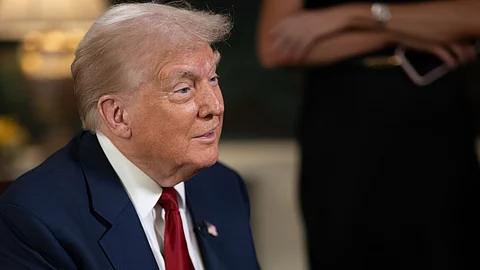

President Donald Trump fired Erika McEntarfer, a top Labor Department official, following a weak U.S. jobs report, accusing her without evidence of manipulating data.
The move, coupled with Federal Reserve Governor Adriana Kugler’s unexpected resignation, has deepened market unease and raised questions about the politicization of economic statistics.
A sharp decline in stock markets followed, driven by the jobs data and Trump’s ongoing tariff policies.
The Bureau of Labor Statistics (BLS) reported that the U.S. economy added only 73,000 jobs in July, significantly below expectations of 109,000.
Revisions also revealed 258,000 fewer jobs created in May and June than previously reported.
Trump, in a Truth Social post, claimed McEntarfer was responsible for faking numbers, stating, "We need accurate Jobs Numbers. I have directed my Team to fire this Biden Political Appointee, IMMEDIATELY."
No evidence supports these allegations.
A Trump administration official, speaking anonymously, cited dissatisfaction with large data revisions and declining survey response rates, which fell from 80.3% in October 2020 to 67.1% in July.
Trump’s tariff announcements have further unsettled markets, with the S&P 500 dropping 1.6% on Friday, its largest daily decline in over two months.
The tariffs, ranging from 10% to 50%, aim to boost U.S. manufacturing but have sparked concerns about economic slowdown.
Critics, including Michael Madowitz of the Roosevelt Institute, warned, "Politicizing economic statistics is a self-defeating act."
The BLS, already strained by resource constraints, has scaled back data collection for key metrics like the Consumer Price Index, amplifying worries about data reliability.
Kugler’s resignation from the Federal Reserve provides Trump an early chance to appoint a new governor, potentially influencing monetary policy.
Trump has repeatedly clashed with Fed Chair Jerome Powell over interest rates, demanding cuts the Fed has not implemented.
Analysts speculate Trump may select a candidate like Kevin Hassett or Scott Bessent to fill Kugler’s term, which ends in January 2026.
Derek Tang of LH Meyer noted, "She’s putting the ball in his court," suggesting Kugler’s exit challenges Trump’s pressure on the Fed.
As markets grapple with these developments, concerns persist about the credibility of U.S. economic data and its global implications.